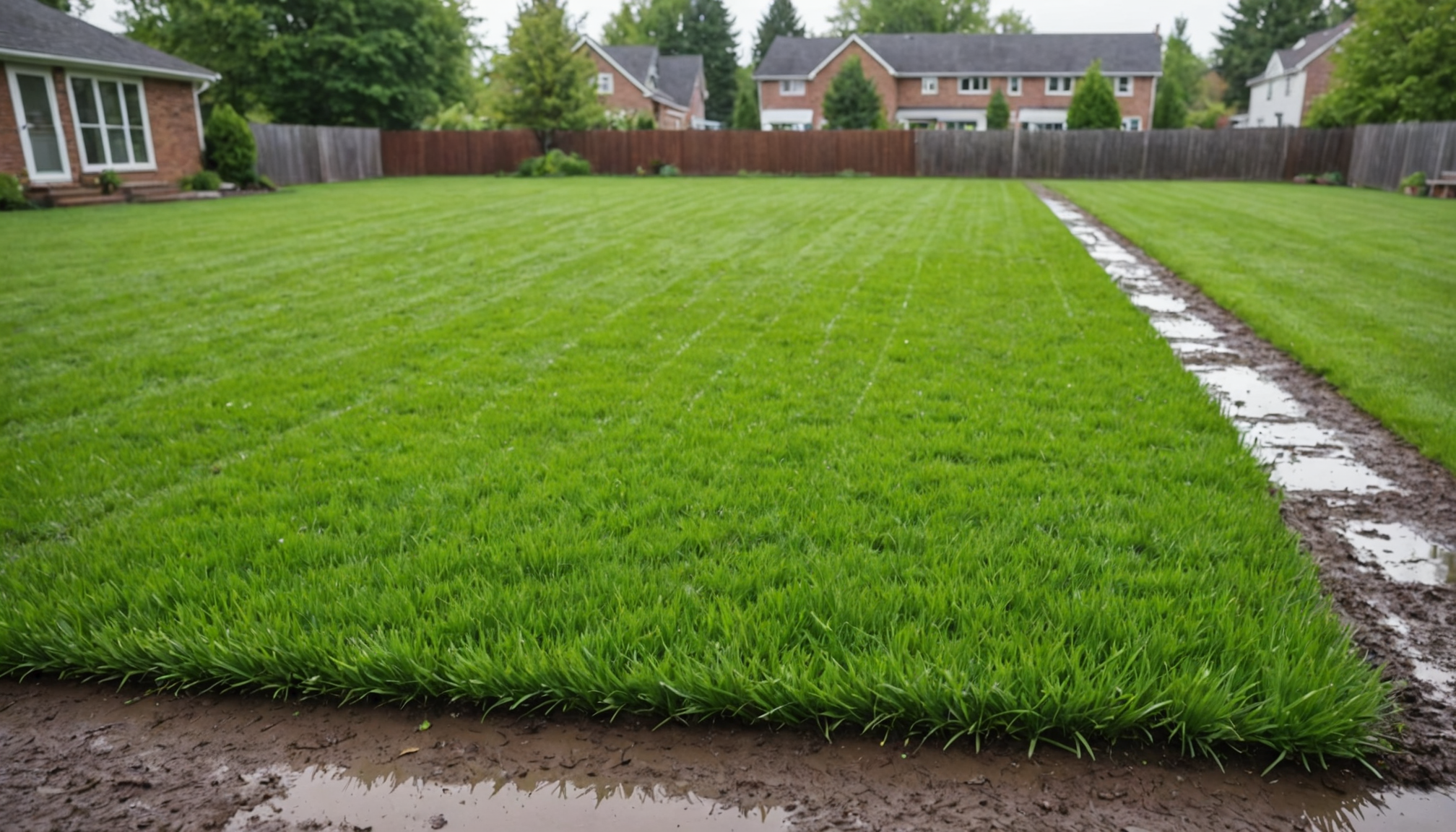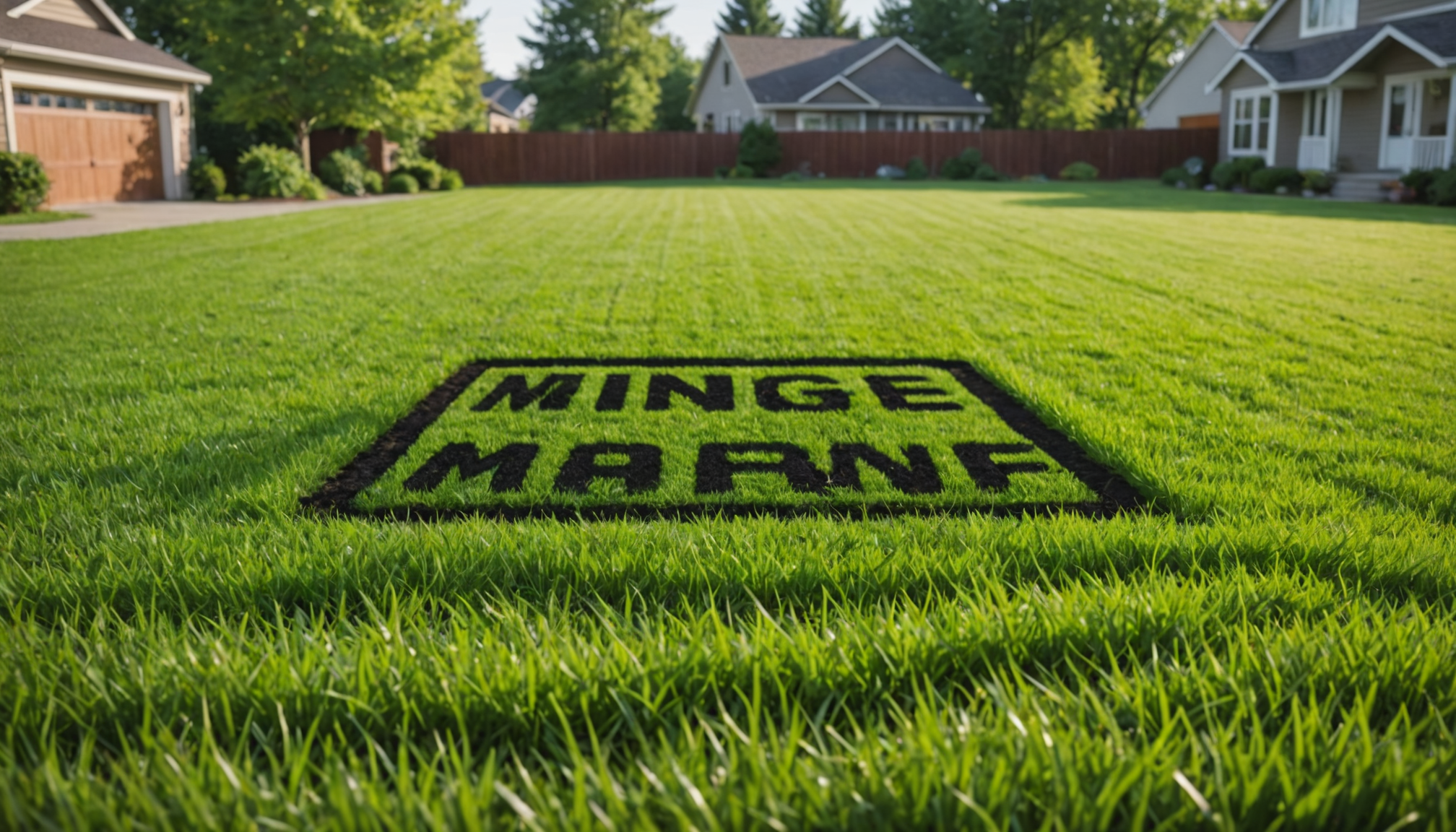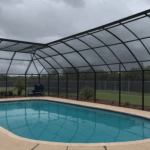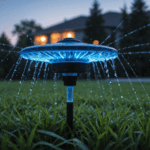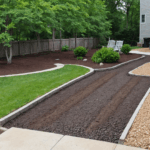Living in Jacksonville’s climate means dealing with frequent heavy rains, which can significantly impact your septic system. Recognizing early warning signs of a compromised system can help prevent costly repairs and protect your family’s health. According to the Florida Department of Health, over 30% of Jacksonville homes rely on septic systems, making this knowledge crucial for local homeowners.
The most immediate red flag is slow-draining fixtures throughout your home. When multiple toilets, sinks, or tubs begin draining slower than usual after heavy rainfall, this often indicates your septic system is struggling to process the additional water volume. The Environmental Protection Agency reports that saturated soil can reduce a septic system’s processing capacity by up to 50%.
Keep an eye out for these telling indicators:
- Gurgling sounds from pipes or drains
- Sewage odors around your yard or inside your home
- Wet, spongy ground near your septic tank or drainfield
- Bright green, unusually lush grass over your septic system
- Backing up of wastewater in basement drains or lowest-level plumbing fixtures
- Standing water or muddy soil around the septic tank area
Studies from the University of Florida’s IFAS Extension show that these warning signs typically appear within 24-48 hours of heavy rainfall events. Particularly concerning is the presence of wastewater backing up into home fixtures, which occurs in approximately 15% of rain-affected systems in Northeast Florida.
If you notice multiple warning signs simultaneously, especially after receiving more than 2 inches of rain within 24 hours (a common occurrence in Jacksonville), your system likely needs immediate attention. The Florida Septic Contractors Association emphasizes that ignoring these signs can lead to complete system failure, with replacement costs averaging $20,000-$30,000.
Monitoring your yard is equally important. A properly functioning septic system should never create visible puddles or cause unusual plant growth patterns. Local maintenance experts recommend regular system inspections, particularly before Jacksonville’s rainy season begins in June, to ensure optimal performance during heavy rainfall periods.
How septic systems respond to flooding
During periods of heavy rainfall and flooding, septic systems in Jacksonville face significant operational challenges. When groundwater levels rise, the system’s ability to process and filter wastewater becomes severely compromised. The saturated soil surrounding the drainfield cannot effectively absorb and treat the effluent, leading to potential system overload.
The septic tank itself may experience physical stress during flooding events. As water tables rise, the tank can become buoyant, potentially causing it to shift or float upward. This movement can damage connection pipes and disrupt the entire system’s functionality. In extreme cases, floodwater can enter the tank through unsealed ports or damaged components, mixing with the contents and disturbing the natural separation process.
The drainfield, a crucial component for wastewater treatment, becomes particularly vulnerable during flooding. When saturated with rainwater, the soil’s absorption capacity decreases dramatically, sometimes by as much as 80%. This reduction forces the system to work harder and may lead to temporary shutdown of normal operations. The Florida Department of Environmental Protection notes that Jacksonville’s coastal location makes local septic systems especially susceptible to these challenges.
During flooding events, the bacterial ecosystem within the tank may also become disrupted. These beneficial bacteria, essential for breaking down waste, can be overwhelmed by the sudden influx of water, reducing the system’s treatment efficiency. Recovery of this biological balance typically takes several days after flood waters recede.
- Septic systems can remain compromised for 1-2 weeks after flood waters recede
- Rising groundwater can reduce drainfield efficiency by up to 80%
- Tanks exposed to flooding may shift up to 3 inches from their original position
- Standard residential septic systems can handle up to 12 inches of soil saturation before showing signs of stress
Regular maintenance becomes even more critical for Jacksonville homeowners in flood-prone areas. Systems that receive routine inspections and pumping typically demonstrate better resilience during extreme weather events, maintaining their functionality even under challenging conditions.
Protective measures before heavy rains
One crucial mistake Jacksonville homeowners often make is waiting until the rainy season to address septic system maintenance. Regular inspections and preventive measures should be implemented well before heavy rains arrive. Start by having your tank pumped if it hasn’t been serviced in the last 2-3 years, as this creates additional capacity for handling excess water during storms.
Installing protective barriers is essential, but many property owners overlook proper water diversion techniques. Ensure all roof downspouts and surface drainage direct water away from your septic system components. A common error is allowing gutters to discharge near the drainfield, which can quickly oversaturate the soil. Install extensions that carry water at least 10 feet away from septic system areas.
Many residents mistakenly increase water usage during storms, adding unnecessary stress to their systems. Reduce household water consumption by:
- Postponing laundry until after the weather improves
- Taking shorter showers or switching to every other day
- Avoiding running dishwashers during heavy rainfall
- Fixing any leaking fixtures before storms arrive
Another frequent oversight is neglecting to mark septic system components. Clear marking helps prevent accidental damage from vehicles or heavy equipment during storm preparations. Use permanent markers or stakes to identify the tank location and drainfield boundaries.
Landscape maintenance plays a vital role, yet many homeowners fail to properly manage vegetation around their septic systems. Remove any large trees within 30 feet of the drainfield, as roots can damage components and create water intrusion points. Maintain proper grass cover over the system to prevent soil erosion during heavy rains.
For flooding protection, some residents install sump pumps in basement areas but forget to include backup power sources. A battery-operated backup system ensures continued protection even during power outages. Professional plumbing contractors in Jacksonville recommend testing these systems monthly during the rainy season.
Remember to maintain detailed records of all septic maintenance activities. Many homeowners overlook this step, making it difficult to track system performance and predict potential issues during severe weather events.
Recovery steps after flooding
Once floodwaters begin to recede, immediate action is crucial to restore your septic system’s functionality. Begin by reducing water usage inside your home to absolute necessities, allowing the system time to recover. Jacksonville homeowners should wait until standing water has completely drained from the septic tank area before initiating any recovery procedures.
Contact your local health department to inspect your drinking water supply, especially if you have a private well near the septic system. Flooding can create cross-contamination risks that require professional assessment. Document all visible damage with photographs for insurance purposes and maintain detailed records of any repairs.
Essential recovery steps include:
- Inspect the drain field for erosion or surface damage
- Check for visible damage to septic tank lids and access ports
- Clean and disinfect any flooded basement areas
- Remove debris from septic system components
- Test all plumbing fixtures for proper operation
Professional maintenance is typically necessary after significant flooding. Have your tank pumped to remove excess water and debris, but only after groundwater levels have decreased. Pumping too early can cause the tank to float or shift position, potentially causing severe damage to connection pipes.
Monitor your system’s performance closely for several weeks following the flood event. Watch for signs of continued problems such as:
- Unusual odors around the drain field
- Slow-draining fixtures
- Sewage backups
- Ground settlement around the tank
Avoid compacting soil over the drain field during cleanup efforts. Keep vehicles and heavy equipment away from the area, as compressed soil can reduce the system’s ability to process wastewater effectively. If you notice persistent issues, don’t hesitate to seek professional assistance – addressing problems promptly can prevent more extensive damage and costly repairs.
Consider implementing preventive measures for future flooding events based on your experience. This might include installing additional drainage features or upgrading system components to better handle heavy rainfall conditions common in Jacksonville’s climate.
Remember to maintain detailed records of all post-flooding maintenance and repairs. These documents can be valuable for future reference and may be required for insurance claims or property records. By following these recovery steps systematically, you can help ensure your septic system returns to normal operation as quickly and safely as possible.
When to call a professional
- How do I know it’s time to call a septic professional in Jacksonville?
- Contact a professional immediately if you notice multiple fixtures backing up, strong sewage odors, or pooling water around your septic system after flooding. Jacksonville’s certified septic contractors recommend professional inspection when your system shows signs of stress for more than 48 hours after heavy rains.
- What’s the average cost of emergency septic service after flooding?
- Emergency septic services in Jacksonville typically range from $200-500 for basic inspection and pumping, while more complex flood-related repairs can cost $1,000-3,000. Most local contractors offer 24/7 emergency services with additional fees for after-hours calls.
- Can I fix my flooded septic system myself?
- DIY repairs on flooded septic systems are not recommended and may violate local regulations. Florida state law requires licensed professionals for most septic system repairs, especially after flood damage, to ensure proper function and protect public health.
- What information should I have ready when calling a septic professional?
- Prepare details about your system’s maintenance history, recent flooding events, and specific symptoms you’ve observed. Having your septic permit number and previous inspection records can help professionals assess the situation more effectively.
- How long should I wait after flooding before calling for maintenance?
- Contact a professional immediately if you notice system failures, but wait until standing water has receded before requesting pumping services. Attempting to pump a flooded septic tank while groundwater levels are high can cause structural damage to the system.
